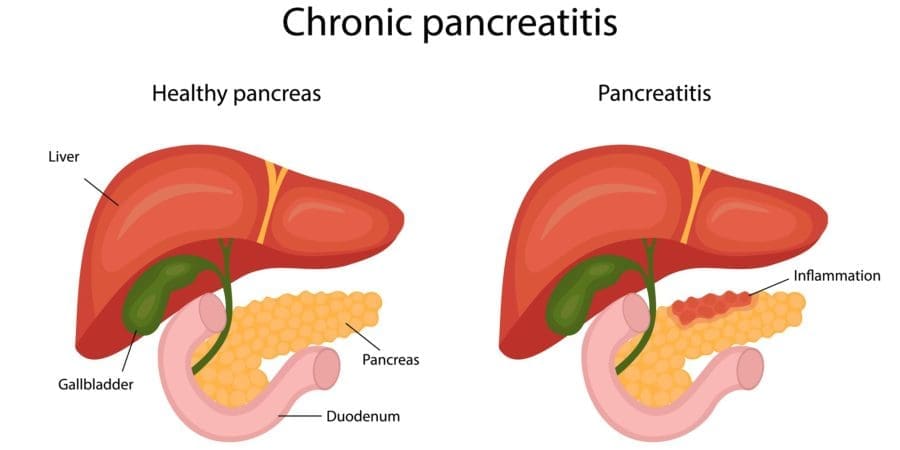
In any given year, one in five adults in America grapples with mental illness, making the need for mental illness help more crucial than ever. The task of assisting a loved one dealing with mental illness can often feel overwhelming.
How do you approach them? What are the available mental health services? And what can you do if they’re among those who refuse help?
This comprehensive guide aims to provide mental illness help by answering all these questions and more.
Whether you’re dealing with undiagnosed symptoms or aiming to encourage someone who’s severely affected, this guide equips you with practical advice and actionable steps for dealing with mental illness.
For those ready to seek professional mental health services, Ridgeview Hospital serves as a beacon of hope, offering a tailored range of treatments to meet individual needs.
Recognizing the Signs of Mental Illness
Recognizing the signs of mental illness is often the critical first step toward getting mental illness help for someone you care about. Being equipped to identify symptoms enables you to approach the individual with empathy. It also provides a solid foundation for encouraging them to seek mental health services. This is an essential part of dealing with mental illness in a compassionate and informed way.
Recognizing Depression
Depression is more than just feeling sad; it’s a debilitating condition that can severely affect someone’s quality of life and falls under the category of mental illnesses needing immediate help. Key indicators often include:
- Sadness that lasts for weeks
Imagine someone who was once full of laughter now appearing continually upset or apathetic. The joy is replaced by a constant cloud of dread that lingers for weeks, making even simple conversations heavy and strained.
- A significant loss of interest in favorite activities
Picture a passionate gardener who suddenly ignores their dying garden. The gloves are collecting dust, and the joy once found in vibrant flowerbeds has quickly turned into indifference.
- Fatigue and lack of energy
Think of a fitness enthusiast who now struggles to climb a single flight of stairs. The energy for morning jogs or playful interactions with their kids is gone, replaced by an unshakeable fatigue.
- Changes in sleep and appetite
Visualize a food lover who now pushes their plate away untouched. Sleep has become a nightly battle, either elusive or excessive, throwing their life’s natural rhythm off balance.
Cases of severe depression
- Suicidal ideation or attempts
Imagine someone who used to talk about future plans and now speaks about not being around much longer. A once hopeful individual begins to make unsettling comments about life not being worth living or giving away cherished possessions as if preparing for an end.
- Feelings of worthlessness or extreme guilt
Picture a colleague who was confident and self-assured, now constantly apologizing for trivial mistakes. Their tone and body language scream that they feel like a burden, as they carry an invisible weight of guilt and worthlessness on their shoulders.
- Difficulty concentrating or making decisions
Visualize a friend who was once decisive and focused, now struggling to choose even simple things like what to have for lunch. Tasks that used to take minutes now stretch into hours, crippled by indecision and a lack of concentration.
Recognizing Anxiety Disorders
Anxiety disorders are another type of mental illness that require specific attention and help. They manifest in various ways, but some common signs include:
- Constant Worrying or Fear
Think of someone who is always on edge, unable to relax, as if always expecting bad news. Their worrying seems too much to bear and hard to control. The fear overshadows daily life and makes it difficult to cope.
- Avoiding Social Situations or Specific Triggers
Imagine a person who once loved parties but now finds excuses to avoid them. This individual starts canceling plans, preferring isolation over facing triggering situations, thereby refusing to seek help or accept treatment.
- Panic Attacks
Visualize someone suddenly gripped by an overwhelming sense of dread, heart pounding and struggling to catch their breath. These intense episodes can strike unexpectedly and may even feel like a heart attack, requiring immediate mental health services.
Types of Anxiety Disorders
- Generalized Anxiety Disorder
This disorder is characterized by continuing, excessive, and unrealistic worry about everyday things. People with Generalized Anxiety Disorder (GAD) experience anxiety and worry that are chronic yet unconnected to any specific threat. This affects multiple aspects of their daily life, including social interactions, work, and health, often requiring specialized mental health services.
Picture someone worrying about everything, even when there’s no obvious reason for concern. They may be dealing with mental illness in a form that’s extensive yet undiagnosed.
- Social Anxiety
Also known as social phobia, this disorder involves overwhelming worry and self-consciousness about everyday social situations. The focus of the worry often revolves around a fear of being judged by others or behaving in a way that could lead to embarrassment or ridicule, making it difficult to cope in social settings.
Imagine someone sweating or trembling at the thought of meeting new people or speaking in public, potentially requiring psychotherapy or other mental health services to help manage their symptoms.
Recognizing Bipolar Disorder
Bipolar disorder is a mental health condition marked by extreme mood swings or episodes, requiring specialized mental illness services for effective management. These episodes can range from manic highs to depressive lows, affecting relationships, employment, and daily activities. Knowing the specific episodes can help you convince your loved one to seek timely intervention and professional help.
- Manic Episodes
During a manic episode, the individual experiences an unusually elevated or irritable mood, increased energy, and reduced need for sleep. This can lead to impulsive decision-making, reckless behaviors, and even grand delusions. These severe symptoms often require immediate mental illness help.
Picture someone who suddenly starts multiple projects, talks rapidly, or believes they have special powers or insights.
- Depressive Episodes
In contrast to the manic state, a depressive episode features low mood, feelings of hopelessness, and a general disinterest in life. The person may withdraw from social situations, struggle with self-worth, and experience difficulties with concentration and decision-making. This phase may necessitate psychotherapy or other mental illness services for better coping mechanisms.
Imagine someone who can’t get out of bed, shuns social activities, or expresses thoughts about feeling worthless or contemplating self-harm.
Recognizing Severe Mental Illnesses
Recognizing Schizophrenia
Schizophrenia is a severe mental disorder that warrants immediate mental illness help. The condition impairs a person’s ability to think clearly, manage emotions, and interact with others. It often produces a range of psychotic symptoms like delusions, hallucinations, and disorganized speech and thought patterns. These symptoms can create a broken sense of reality, making it difficult to encourage the individual to accept treatment or even distinguish between what is real and what is not.
- Delusions or Strongly Held False Beliefs
Delusions are false beliefs that the person holds despite evidence to the contrary. These beliefs can be grand, paranoid, or even bizarre, often causing significant distress or impairing their ability to function.
For instance, they may believe that they have special powers or that they are being persecuted by unseen forces. If you’re dealing with a loved one who refuses help, understanding the nature of these symptoms can be essential.
- Hallucinations or Hearing Voices
Hallucinations involve sensory experiences that are not based in reality, and they often require mental illness help and services for management. Auditory hallucinations, such as hearing voices, are the most common. These voices can be threatening, commanding, or even friendly, but they contribute to the individual’s distorted sense of reality.
Someone might hear voices instructing them to perform certain actions or making derogatory comments.
- Disorganized Speech and Thought Patterns
A person with schizophrenia may demonstrate disorganized thinking that’s evident through their speech, complicating their mental health resources and treatment options. This can manifest as incoherence, irrelevant responses, or conversations that don’t logically flow from one point to the next.
They might start talking about the weather and abruptly switch to discussing government conspiracies.
Recognizing Acute Bipolar Disorder
In severe or “acute” instances of bipolar disorder, the classic symptoms of mood swings take on increased intensity and frequency, demanding immediate mental illness help. The rapid cycling between manic and depressive states can severely disrupt an individual’s daily life, making it critical for those involved to seek professional mental illness help.
- Extreme Mood Swings
In acute bipolar disorder, rapid and extreme mood swings are common, sometimes even within the same day. This rapid cycling complicates efforts to encourage the individual to accept treatment.
For example, a person may be elated and overly talkative in the morning, making grand plans for the future. Later in the day they sink into deep despair, possibly even refusing help.
- Risky Behaviors
Risky behaviors, such as excessive spending or reckless driving, escalate during manic episodes in acute cases. These actions are not just a cry for mental health help but often a severe disruption in daily life that demands immediate attention.
Imagine someone maxing out multiple credit cards in a single afternoon or driving dangerously fast on the highway without concern for safety.
- Severe Disruption in Daily Life
The extreme mood swings can lead to significant disruptions in personal relationships, work, and daily activities. If you’re dealing with a loved one who refuses help, understanding the severity of these disruptions can be key to convincing them to seek professional assistance.
One moment, the individual might be highly sociable and the life of the party; the next, they may abruptly cut off friends, convinced that everyone is against them.
First Steps in Offering Mental Illness Help

Establishing a supportive conversation with someone you suspect is dealing with mental illness can be a pivotal step in helping them get the mental health services they need. This section aims to equip you with the tools and etiquette necessary to encourage loved ones to seek help, particularly when they may be reluctant or refusing assistance.
Importance of Open Dialogue for Encouraging Mental Illness Help
Having an open and non-judgmental conversation sets the stage for offering effective mental illness help. Creating a foundation of trust, this step offers a safe space for your loved one to share their struggles and feelings. In this way, you encourage them to seek mental health services and accept treatment, should they need it.
To optimize this crucial discussion, select a private, comfortable setting and ensure you’re free from distractions. This focused environment will help both you and your loved one cope better with the issue at hand.
The Do’s and Don’ts of Approaching Someone About Mental Illness Help
Approaching a loved one about their mental well-being is a delicate matter; both your word choice and tone set the stage for constructive dialogue. This section provides a quick guide on the do’s and don’ts when starting this crucial conversation. Your role is to serve as a bridge to professional mental health services.
Do’s
- Be Empathetic: Empathy is the cornerstone of any meaningful mental health dialogue. Exhibit a genuine concern and refrain from passing judgment. Respond empathetically to struggles they may share. For example: “That sounds really tough. I can’t fathom what you’re experiencing, but I’m here to support you.”
- Be Prepared: Equip yourself with information on mental health services, treatment options, and even local therapists. The more knowledgeable you are, the better you can guide your loved one toward professional mental health help. Before the conversation: Research Ridgeview Hospital or other local mental health facilities to offer actionable steps.
- Be Direct but Gentle: Clarity is key, but sensitivity is non-negotiable. Your approach should be forthright while respecting the sensitivities around mental illness. Instead of: “You need help,” try “Have you considered speaking to a mental health professional about what you’re experiencing?”
Don’ts
- Don’t Confront Aggressively: An aggressive confrontation can make the individual defensive, closing off avenues of meaningful dialogue. Avoid: “You have a problem and need to fix it now.”
- Don’t Offer Solutions: You’re not a healthcare provider; your role is to guide them to expert mental health care. Providing your own solutions can be both incorrect and potentially harmful. Say: “I believe a qualified mental health professional can offer you tailored advice.”
- Don’t Minimize Their Feelings: Trivializing their feelings can deter them from seeking the mental health services they may need. Avoid: “It’s not a big deal; everyone gets stressed.”
Your primary goal in this mental health conversation is to encourage them to seek qualified professional advice and consider a treatment plan tailored for them.
What to Do When Someone Refuses Mental Illness Help
Navigating a situation where a loved one refuses mental health assistance can be challenging. Your approach must be as considerate and informed as possible. Here are some strategies:
How to Approach a Loved One Who Refuses Mental Illness Help
Sometimes resistance is due to fear or misunderstanding. Maintain an open dialogue but don’t push too hard.
If they say, “I don’t think therapy will help,” you can respond with, “I understand you’re skeptical, but it’s a professional’s job to help with exactly what you’re going through.”
When to ‘Force’ Intervention and Legal Considerations
Forcing intervention is a last resort and should only be considered if the person is a danger to themselves or others. Familiarize yourself with local laws around involuntary commitment.
If your loved one expresses suicidal thoughts or plans to harm others, it’s time to seek emergency assistance immediately, even if they refuse help.
Approaching someone who believes that mental health professionals are just “in it for the money” requires sensitivity and tact. One strategy is to acknowledge their skepticism while pointing out that many professionals enter the field specifically to help people and make a meaningful impact.
How to Seek Professional Mental Illness Help
Finding the right mental health service is crucial for effective treatment. Here are some ideas to help you make an informed decision:
Steps to Seek and Identify the Right Mental Health Services
Start with a general physician for an initial diagnosis, followed by recommendations for specialists. Do your research on these specialists to ensure they’re a good fit.
Look for reviews, credentials, and testimonials about the psychiatrist or therapist you’re considering. Speak with them beforehand to ensure they specialize in the area of concern.
Introduction to Ridgeview’s Adult Psychiatric Program

Ridgeview offers a comprehensive program that caters to various mental health issues. They employ seasoned adult psychiatrists who are experts in the field.
If you’re dealing with severe anxiety or depression, Ridgeview’s Adult Psychiatric Program can offer you both medication management and cognitive behavioral therapy under one roof.
Addressing Alcohol and Substance Abuse
Navigating the complexities of mental health is a challenging endeavor, further complicated when alcoholism and substance abuse enter the equation. Often, these issues are connected, influencing each other and make things worse.
The Overlap of Alcoholism and Substance Abuse with Mental Health Issues
Alcoholism and substance abuse are often linked with mental health disorders, forming what professionals term as ‘co-occurring disorders’ or ‘dual diagnosis.’ This relationship can go both ways: mental health issues can lead to substance abuse as a form of self-medication, and prolonged substance abuse can lead to the development or worsening of mental health conditions. Understanding this overlap is critical for effective diagnosis and treatment planning.
Imagine a person struggling with anxiety who begins to rely on prescription medications or alcohol to ease their symptoms. Over time, not only does their anxiety remain untreated, but they also develop a dependency, further complicating their overall mental health.
Ridgeview Hospital’s Unique Approach to Co-Occurring Disorders
When it comes to treating co-occurring disorders—simultaneous mental health and substance use disorders—Ridgeview Hospital adopts a unique, holistic approach. Traditional treatment methods often focused on either mental health or substance abuse, neglecting the interconnected nature of these issues. This fragmented approach led to incomplete treatment and a high likelihood of relapse.
Ridgeview Hospital’s Co-Occurring Substance Use program recognizes the need for integrated treatment. The goal is not just symptom management but long-term recovery, treating both conditions as part of a unified whole.
Treatment Methods:
- Psychotherapy
Individual sessions with licensed mental health professionals focus on personal history, unique challenges, and treatment goals. Coping skills and personalized advice are part of the package.
- Group Therapy
Group sessions offer the chance for patients to share experiences and identify self-destructive behavioral patterns, while learning from others in similar situations.
- Activity and Exercise
Emphasizing the role of physical health in mental well-being, the program includes guidance on proper nutrition and exercise regimens.
Contact Information: For further details or enrollment queries, reach out to our admissions specialists at 419-757-4692 or fill out the contact form.
Local Mental Illness Help and Resources
When you or a loved one are facing mental health challenges, it’s crucial to be aware of the resources available in your community. While Ridgeview Hospital provides comprehensive care and treatment options, we understand the importance of supplemental education and support. Here’s a list of resources that can help you gain more insight into mental health issues:
- Treatment Centers: There are multiple treatment centers in Ohio, Michigan, Indiana and the surrounding areas, whether you are seeking inpatient, inpatient, or outpatient care.
- Public Libraries: Many local libraries offer books, journals, and digital resources on various mental health topics. These can be valuable tools for understanding the details of mental health issues.
- Mental Health First Aid Courses: While not a substitute for professional treatment, these courses can equip you with the basic knowledge needed to understand and respond to signs of mental illness.
- Community Centers: Local community centers often host mental health awareness workshops, seminars, and support groups. Check their schedules for upcoming events that might be relevant to you.
- Health Departments: Your local health department can be a resource for pamphlets, brochures, and other educational material on mental health issues.
- Family and Caregiver Support: Organizations often offer resources specifically aimed at families and caregivers, providing strategies for supporting a loved one with a mental health issue.
By utilizing these resources, you and your loved ones can become more informed and better prepared to navigate mental health challenges.
Next Steps
In navigating the intricate landscape of mental health, this guide aims to provide comprehensive mental health resources. Whether you’re dealing with mental illness yourself or you’re a roommate, family member, or friend trying to offer mental illness help, every action counts.
From learning how to recognize undiagnosed, severe symptoms to understanding when and how to encourage someone who refuses help to seek and accept treatment, you’re not alone.
Ridgeview Hospital offers a range of mental health services and mental illness services, including psychotherapy and adult psychiatric care.
Remember, the first step to cope with mental health issues is to get help. Recovery is possible, and professional mental health help is available.
If you wish to reach out to us, please fill out the contact form below:
Deciding to distance yourself from someone with a mental illness is a complex and sensitive issue that should be handled with care. If the relationship becomes too emotionally draining, affects your own mental health negatively, or if there’s a pattern of toxic behavior that doesn’t improve despite attempts to help, it may be time to consider walking away. Prioritize your own well-being, and consult with mental health professionals for guidance on how to approach the situation.
For individuals with severe mental illness, immediate professional intervention is crucial, which may include inpatient or inpatient treatment for acute symptoms. Support from loved ones in helping them access and navigate mental health services is vital. It’s important to maintain an open dialogue, while also guiding them toward professional evaluation and treatment options tailored to their needs.
Individuals with mental illness can begin their journey to recovery by recognizing the signs and symptoms of their condition. Open and empathetic conversations with loved ones can provide initial support and encouragement to seek professional help. Professional assistance may include consulting a mental health professional for diagnosis and treatment, which can encompass various approaches like therapy, medication, and sometimes inpatient care.
When dealing with someone who is mentally ill and refuses to seek help, it’s essential to approach the situation with empathy and understanding. Providing non-judgmental support while offering information on available mental health resources can be beneficial. However, if the person poses an immediate risk to themselves or others, emergency intervention may be necessary.





















